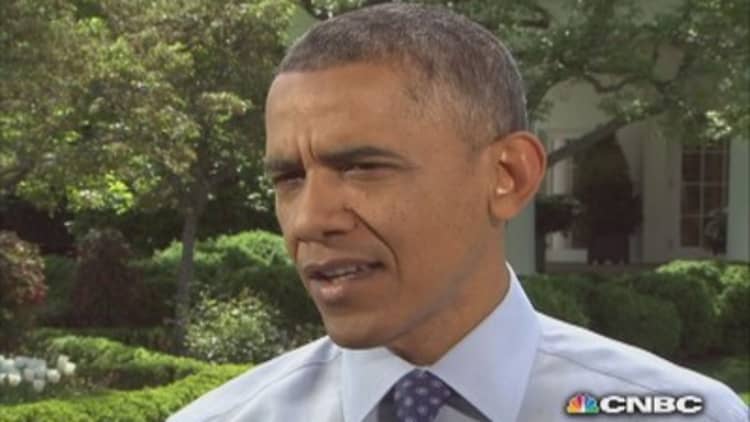Mark Brown saw the tornado coming but could do nothing more than watch it crash through the downtown area of Sutton, Nebraska, on Sunday—and see his food store nearly destroyed.
"My wife and I were in the basement of my mother-in-law's home, and we saw it hit the main street just three blocks away," said the 62-year-old Brown. "It tore off the store's roof, and we had quite a lot of water damage."
"We're closed for now," said Brown, whose business, Brown's Thrift Store, employs 30 people.
Sutton, with a population of some 1,500 people, is one part of the Midwest that was pummeled by a spring storm this past weekend. Sections of Utah, Colorado, Oklahoma, Wyoming, and Arkansas were pelted by heavy rains, floods and snow—along with several tornadoes that hit Nebraska. Fortunately, there were no reported deaths from the severe weather.
"It's hard to say how long we'll be shut down," Brown said as he walked through the 14,000-square-foot building with his insurance agent to assess the damage. "But it will be a while."
Brown, who started working in the store for his father after graduating from college in 1974, added that he has no way to know at this time how much money he will get from insurance claims or how he will take care of his workers. "We'll just have to see," he said.
Read MoreThere's money in bad weather, and it's booming
Several homes and businesses in Sutton suffered power outages and structural damage.
It's too early to asses the full economic damage, but the Nebraska Emergency Management Agency (NEMA) said in an email to CNBC that the agency has "teams out in the field doing damage assessment in the rural areas and communities that were affected by last night's (Sunday) tornadoes and thunderstorms. We will have a better picture of all the damage after those assessments are completed."
Economics of severe weather
Tornadoes and other severe weather events are nothing new in the Midwest or in other parts of the country. What may be unusual is their recent frequency—with predictions of more bad weather in the years to come.
And that means trouble for the business community. According to a 2012 report from the non-profit business sustainability group Ceres, worsening weather in a warming world poses a growing risk to the financial stability of businesses and specifically insurance companies, who have to pay out claims, in the billions each year, from the damage.
Severe weather's economic impact is huge. A 2013 report from financial services corporation Allianz, states that 30 percent of the U.S. gross domestic product is affected by severe weather conditions each year. The report says that as much as 70 percent of all companies can be exposed to severe weather conditions at any one time.
Read MoreEl Niño on the way? Here's one way to invest it
That means businesses have to literally plan for a rainy day, said Scott Bernhardt, president of Planalytics, a global business weather intelligence firm founded in 1996, with offices in London and Berwyn, Pennsylvania.
"Businesses must consider having a weather scheme in place," Bernhardt said. "Some companies are doing it, but others aren't. It means keeping an eye on weather conditions and having insurance coverage and making sure you manage your money to have some sort of relief fund if a severe weather incident takes place," he said.
'All we could do was take cover'

A total of 10 businesses in Sutton were affected by the tornado, according to NEMA—including Brown's. Local insurance agents were all out of the office Monday and Tuesday, assessing damage for their customers, said an industry source. They'll likely be doing that all week.
Read MoreTime to 'get real' on climate change: EU official
Although officials in Nebraska and other states said their weather warning systems are much better than in years past, they said there's no way to stop major weather events from happening. That's something Brown said he knew firsthand.
"We had warnings of tornadoes for the day, but you can't tell where or when they will touch down," Brown said. "It took just about 15 seconds for it to hit. There wasn't much time to do anything but take cover."
—By CNBC's Mark Koba.


